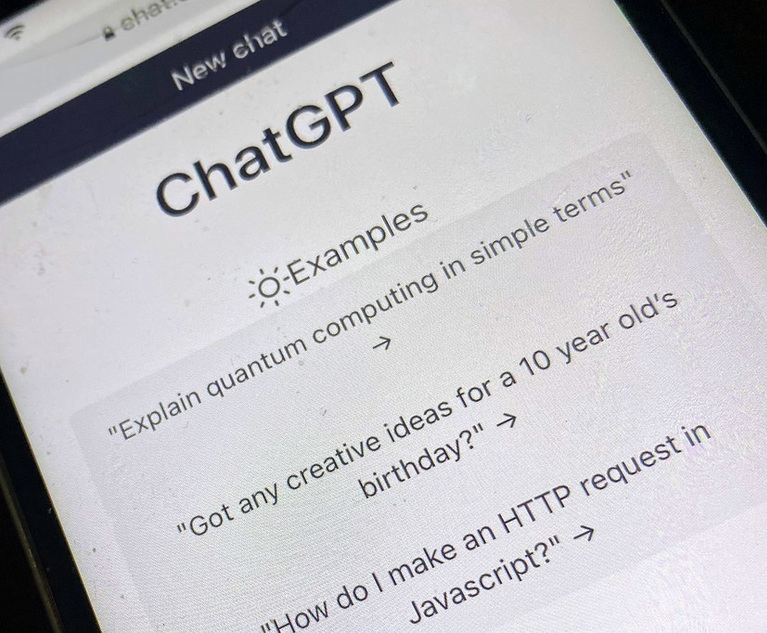Stephanie Wilkins
Stephanie Wilkins is the Editor-in-Chief of Legaltech News at ALM. She has spent the better part of the past decade following the evolution of legal tech and learning how it can help in-house counsel, law firms and others in the legal industry. As a former practicing litigator, she is particularly interested in how legal tech can and should be used in real-life practice and the valuable differences it can make. Stephanie is also keenly interested in shining a light on the ways legal tech is being used to help the greater good.

June 01, 2023 | Legaltech News
Casepoint Suffered Ransomware Attack, BlackCat Hacker Cartel Claims on Dark WebThe Casepoint platform is used by a number of U.S. government agencies and departments. BlackCat claims to be holding over two terabytes of Casepoint's data hostage, including attorney files and "many other things you have tried so hard to keep."
By Stephanie Wilkins | Rhys Dipshan
3 minute read

June 01, 2023 | Legaltech News
Developments in Artificial Intelligence Do Not Make Legal That Which Was IllegalThere is a danger that hype, and misconception, will lead to overly restrictive regulation that has a strangulating effect on research and innovation.
By P.J. Breen, Larra-AI
3 minute read

May 31, 2023 | Legaltech News
Legal Tech vs. the Billable Hour: Experts Weigh InFew things symbolize the legal industry's commitment to maintaining the status quo as much as the endurance of the billable hour.
By Stephanie Wilkins
7 minute read

May 31, 2023 | Legaltech News
The Challenge of Smartphone Data in E-Discovery: Why Targeted Collection Is CrucialIn today's digital age, the old "collect everything" approach to evidence no longer works. Given the ubiquity of cellphones in our culture, it is crucial for e-discovery practitioners to carefully and strategically target mobile device data collection, or risk significant downstream costs and inefficiencies.
By Matt Rasmussen, ModeOne Technologies
3 minute read

May 31, 2023 | Legaltech News
Lega Inc. Emerges From Stealth Mode With LLM-Governance Platform, Enabling Safe Legal AI Experimentation"There's nothing more important right now than just getting your hands on [large language models] and seeing what they can do, and trying to find use cases. But it has to be done in a way that's responsible," Lega founder and CEO Christian Lang told Legaltech News.
By Stephanie Wilkins
8 minute read

May 30, 2023 | Legaltech News
Generative AI May Be the Future, But APIs Impact Profitability TodayOne of the tools that law firms can use right now to impact firm profitability and protect against being unequipped when even more consequential evolutions of generative AI emerge in the future are plug-and-play APIs to get access to structured, normalized data in real time from external data sources.
By Jeff Cox, UniCourt
6 minute read

May 26, 2023 | Legaltech News
Legal Moves Fast on AI—For OnceAt this year's CLOC Global Institute, as prominent as discussions of generative AI's promise for legal were conversations about its risks and challenges.
By Erin Harrison, NextTech Communications
6 minute read

May 25, 2023 | Legaltech News
The Impact of AI: Enhancing and Empowering the Ability of Corporate Lawyers to Serve ClientsAI tools can revolutionize certain aspects of corporate legal work, but AI won't replace laywers' years of experience, judgment and reasoning anytime soon.
By Jared Burden, GreeneHurlocker PLC
8 minute read

May 25, 2023 | Law.com
ChatGPT Faces a Timeout as Legal Turns Its Attention to More Mature, Legal-Specific AI ToolsChatGPT rarely finds itself in most serious conversations about the use of generative AI in legal, and the focus is instead on the advanced LLMs themselves, such as GPT-4, and how they can best be harnessed to address the needs and concerns of the legal industry.
By Stephanie Wilkins
8 minute read

May 25, 2023 | Legaltech News
Poll Result: There Should Be No Pause in Training Advanced AI ModelsWe asked readers if they agreed with a recent proposal to pause the training of advanced generative AI models for six months, and 62% said no. Here's why.
By Stephanie Wilkins
7 minute read
Trending Stories
- 1$20M and Still Going: Is Partner Pay a Bubble?
- 2'Babe': Judge Sanctioned After Sexually Harassing Fellow Jurist
- 3First Infant Formula Trial Against Abbott Begins in Missouri
- 4Biden Will Be First Lawyer-President Without a JD From the 'T-14' in a Century
- 5Ossoff Becomes First Judiciary Cmte. Democrat to Reject Biden Judicial Choice
More from ALM
- Morgan & Morgan Class Action Attorneys Detail Pathway to Success Within Cybersecurity and Data Privacy Practice 1 minute read
- Holwell Shuster & Goldberg Partners Leverage 'Hostile' Witnesses to Secure $101 Million Verdict Against Walmart 1 minute read
- Legal Speak at General Counsel Conference Midwest 2024: Mike Andolina, Partner, White & Case 1 minute read



